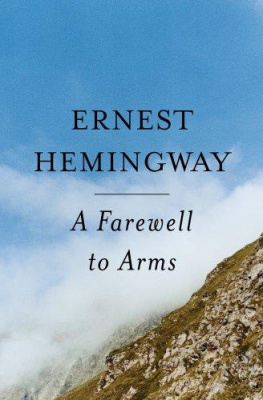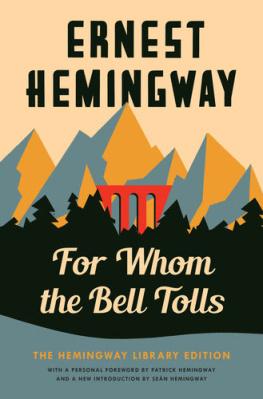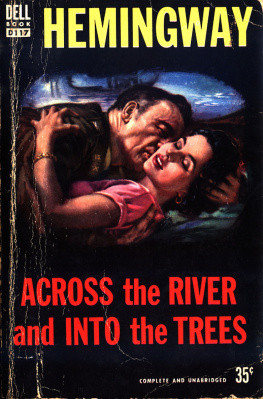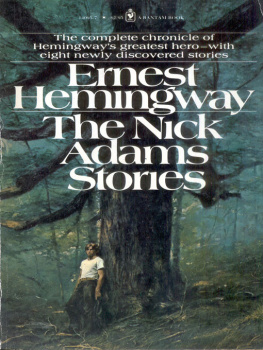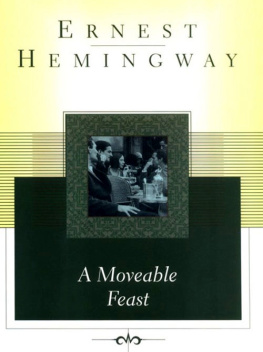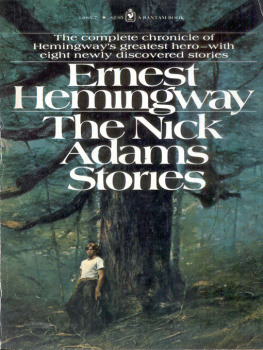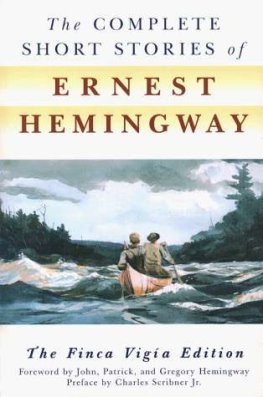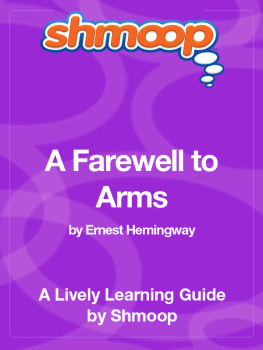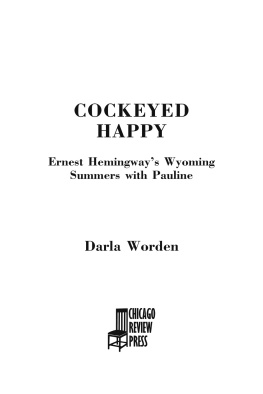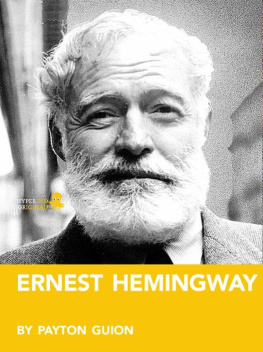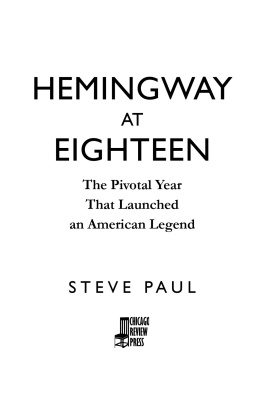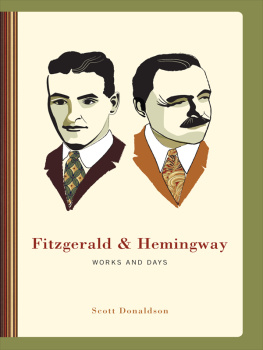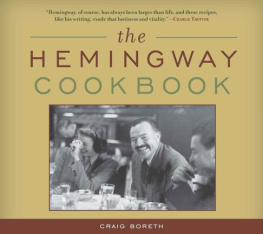8
The next afternoon we heard there was to be an attack up the river that night and that we were to take four cars there. Nobody knew anything about it although they all spoke with great positiveness and strategical knowledge. I was riding in the first car and as we passed the entry to the British hospital I told the driver to stop. The other cars pulled up. I got out and told the driver to go on and that if we had not caught up to them at the junction of the road to Cormons to wait there. I hurried up the driveway and inside the reception hall I asked for Miss Barkley.
She's on duty.
Could I see her just for a moment?
They sent an orderly to see and she came back with him.
I stopped to ask if you were better. They told me you were on duty, so I asked to see you.
I'm quite well, she said, I think the heat knocked me over yesterday.
I have to go.
I'll just step out the door a minute.
And you're all right? I asked outside.
Yes, darling. Are you coming to-night?
No. I'm leaving now for a show up above Plava.
A show?
I don't think it's anything.
And you'll be back?
To-morrow.
She was unclasping something from her neck. She put it in my hand. It's a Saint Anthony, she said. And come to-morrow night.
You're not a Catholic, are you?
No. But they say a Saint Anthony's very useful.
I'll take care of him for you. Good-by.
No, she said, not good-by.
All right.
Be a good boy and be careful. No, you can't kiss me here. You can't.
All right.
I looked back and saw her standing on the steps. She waved and I kissed my hand and held it out. She waved again and then I was out of the driveway and climbing up into the seat of the ambulance and we started. The Saint Anthony was in a little white metal capsule. I opened the capsule and spilled him out into my hand.
Saint Anthony? asked the driver.
Yes.
I have one. His right hand left the wheel and opened a button on his tunic and pulled it out from under his shirt.
See?
I put my Saint Anthony back in the capsule, spilled the thin gold chain together and put it all in my breast pocket.
You don't wear him?
No.
It's better to wear him. That's what it's for.
All right, I said. I undid the clasp of the gold chain and put it around my neck and clasped it. The saint hung down on the Outside of my uniform and I undid the throat of my tunic, unbuttoned the shirt collar and dropped him in under the shirt. I felt him in his metal box against my chest while we drove. Then I forgot about him. After I was wounded I never found him. Some one probably got it at one of the dressing stations.
We drove fast when we were over the bridge and soon we saw the dust of the other cars ahead down the road. The road curved and we saw the three cars looking quite small, the dust rising from the wheels and going off through the trees. We caught them and passed them and turned off on a road that climbed up into the hills. Driving in convoy is not unpleasant if you are the first car and I settled back in the seat and watched the country. We were in the foothills on the near side of the river and as the road mounted there were the high mountains off to the north with snow still on the tops. I looked back and saw the three cars all climbing, spaced by the interval of their dust. We passed a long column of loaded mules, the drivers walking along beside the mules wearing red fezzes. They were bersaglieri.
Beyond the mule train the road was empty and we climbed through the hills and then went down over the shoulder of a long hill into a river-valley. There were trees along both sides of the road and through the right line of trees I saw the river, the water clear, fast and shallow. The river was low and there were stretches of sand and pebbles with a narrow channel of water and sometimes the water spread like a sheen over the pebbly bed. Close to the bank I saw deep pools, the water blue like the sky. I saw arched stone bridges over the river where tracks turned off from the road and we passed stone farmhouses with pear trees candelabraed against their south walls and low stone walls in the fields. The road went up the valley a long way and then we turned off and commenced to climb into the hills again. The road climbed steeply going up and back and forth through chestnut woods to level finally along a ridge. I could look down through the woods and see, far below, with the sun on it, the line of the river that separated the two armies. We went along the rough new military road that followed the crest of the ridge and I looked to the north at the two ranges of mountains, green and dark to the snow-line and then white and lovely in the sun. Then, as the road mounted along the ridge, I saw a third range of mountains, higher snow mountains, that looked chalky white and furrowed, with strange planes, and then there were mountains far off beyond all these that you could hardly tell if you really saw. Those were all the Austrians' mountains and we had nothing like them. Ahead there was a rounded turn-off in the road to the right and looking down I could see the road dropping through the trees. There were troops on this road and motor trucks and mules with mountain guns and as we went down, keeping to the side, I could see the river far down below, the line of ties and rails running along it, the old bridge where the railway crossed to the other side and across, under a hill beyond the river, the broken houses of the little town that was to be taken.
It was nearly dark when we came down and turned onto the main road that ran beside the river.
A Farewell To Arms
9
The road was crowded and there were screens of corn-stalk and straw matting on both sides and matting over the top so that it was like the entrance at a circus or a native village. We drove slowly in this matting-covered tunnel and came out onto a bare cleared space where the railway station had been. The road here was below the level of the river bank and all along the side of the sunken road there were holes dug in the bank with infantry in them. The sun was going down and looking up along the bank as we drove I saw the Austrian observation balloons above the hills on the other side dark against the sunset. We parked the cars beyond a brickyard. The ovens and some deep holes had been equipped as dressing stations. There were three doctors that I knew. I talked with the major and learned that when it should start and our cars should be loaded we would drive them back along the screened road and up to the main road along the ridge where there would be a post and other cars to clear them. He hoped the road would not jam. It was a one-road show. The road was screened because it was in sight of the Austrians across the river. Here at the brickyard we were sheltered from rifle or machine-gun fire by the river bank. There was one smashed bridge across the river. They were going to put over another bridge when the bombardment started and some troops were to cross at the shallows up above at the bend of the river. The major was a little man with upturned mustaches. He had been in the war in Libya and wore two woundstripes. He said that if the thing went well he would see that I was decorated. I said I hoped it would go well but that he was too kind. I asked him if there was a big dugout where the drivers could stay and he sent a soldier to show me. I went with him and found the dugout, which was very good. The drivers were pleased with it and I left them there. The major asked me to have a drink with him and two other officers. We drank rum and it was very friendly. Outside it was getting dark. I asked what time the attack was to he and they said as soon as it was dark. I went back to the drivers. They were sitting in the dugout talking and when I came in they stopped. I gave them each a package of cigarettes, Macedonias, loosely packed cigarettes that spilled tobacco and needed to have the ends twisted before you smoked them. Manera lit his lighter and passed it around. The lighter was shaped like a Fiat radiator. I told them what I had heard.

